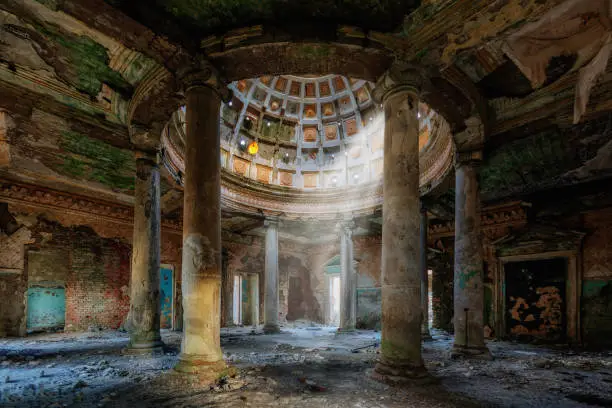Genesis of a Cosmic Tale: Humanity's First Steps





Civilizations have risen and fallen throughout the annals of history. From the grandeur of ancient Rome to the splendors of the Maya, there is a recurrent motif in these stories. When an advanced, technologically superior civilization meets one less developed, it often culminates in the dissolution or even annihilation of the latter. This is not just a matter of might but a complex interplay of culture, ideas, and often the inability of the less advanced society to comprehend and adapt to the rapid changes thrust upon it.
Then, we face the daunting question: How would humanity grapple with extraterrestrial entities possessing not just superior technology, but also radically different philosophies, morals, or even cognitive capacities? If these beings can traverse the vast expanses between stars, their mental prowess and integration with technologies like artificial intelligence could be beyond our wildest imaginations. Their values, perceptions of existence, and concepts of morality could be so alien that we might struggle to find common ground. Would we view them with awe, fear, or an urge to understand? How would our civilizations reconcile such profound differences?
Moreover, while the narratives from our own history are cautionary tales emphasizing the vulnerability of civilizations when faced with superior technological forces, there’s an added dimension when we consider the possibility of encountering beings of superior mental and philosophical depth. What happens when we extrapolate this scenario to a cosmic scale? If Earth were to encounter such extraterrestrial civilizations, would we stand the test, or would our story follow the patterns of old?



Where We Stand
Before we confront the vast expanse of the cosmos, we must first address the fractured nature of our own world. Humanity, for all its diversity and brilliance, remains divided by arbitrary borders, religions, ideologies, and petty conflicts. We’ve witnessed time and again how such divisions have halted progress, fueled enmities, and sowed seeds of destruction.
Yet, the future might not be as bleak as it appears. As we stand on the precipice of global challenges – climate change, biodiversity crises, encounters with extraterrestrial intelligences, and more – there is a burgeoning idea: the concept of a “hive mind” for humanity. This doesn’t imply a monolithic, singular consciousness, but rather a collective realization of our shared fate, identity, and the intrinsic value of every human being.
Imagine a world where the primacy of national identities fades, replaced by a profound recognition of our shared human heritage. No longer would we see individuals from different nations, religions, or backgrounds as ‘others’. Instead, the entire human race could come to perceive itself as inhabitants of Earth first – Earthlings in the truest sense.
In this world, the arbitrary distinctions that have fueled centuries of strife would dissolve, replaced by a commitment to collective welfare and shared progress. Global problems wouldn’t be viewed through the lens of national interests but addressed with a collective vigor, with humanity pooling its resources, ingenuity, and spirit to confront and overcome them.
This vision, while utopian, isn’t unfounded. As our world becomes increasingly interconnected, the traditional lines that have divided us are blurring. The internet, a potent symbol of our age, is but a precursor to the potential unity of human thought and purpose.
Brace for Impact
To embrace such a future, we must first recognize our shared past and the follies that have beset us. Only by understanding the fragility of civilizations, and the dire consequences of divisions, can we hope to forge a united, harmonious future. The stars might be vast and unyielding, but united as one, humanity might just stand a chance.
Of course, the journey towards this harmonious future calls each individual to rise, to realize that they are not mere spectators in this grand theatre of existence but are pivotal actors. Every action, every word, and even every thought contributes to the symphony of human evolution. To move from being passive observers to active participants in shaping our collective destiny requires a paradigm shift in our understanding of our role in the universe.
Individual responsibility in this context is not just about mitigating harm or living sustainably, but about proactively championing the values that underscore our shared human endeavor. It’s about fostering conversations, inspiring communities, and nurturing the next generation with tales of hope and visions of a united world.
In essence, each one of us carries the torch of humanity’s aspirations. Our individual lives become a testament to the potential of the collective. The weight of this responsibility is vast, but so is its power. By embracing this role, by living consciously and with purpose, every individual has the capacity to sow seeds of change, to inspire and to transform. Through our collective actions and unified purpose, we can indeed craft a future where humanity stands not as disparate fragments but as a unified force, echoing our aspirations across the cosmos.
